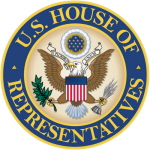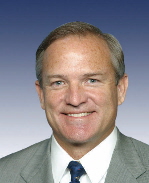‘No’ Vote on Health Care May Have Saved Several Democratic House Seats in McCain Districts
House Democrats from McCain districts voting ‘no’ on health care were reelected at nearly four times the rate as those voting ‘yes’

A Smart Politics analysis finds that while just 11 percent of Democrats who voted ‘yes’ on the health care bill in congressional districts carried by John McCain in 2008 were reelected to the 112th Congress (2 of 18 representatives), 39 percent of those who voted ‘no’ in McCain districts will return to their offices in D.C. (9 of 23).
At first glance, it may seem like voting ‘no’ with the Republicans in March did not pay any dividends for Democratic incumbents on November 2nd.
In total, from the batch of 34 Democrats who voted ‘no’ on health care last March, only a baker’s dozen will return to the 112th Congress – with 17 of 30 defeated at the ballot box on November 2nd, or just a 43 percent reelection rate.
By contrast, 82 percent of Democrats up for reelection who voted ‘yes’ on the bill won their contest: 167 victories and 37 defeats.
Democratic U.S. House 2010 Reelection Success by Health Care Vote
|
Vote
|
Won
|
Lost
|
Total
|
% Won
|
|
Yes
|
167
|
37
|
204
|
82.4
|
|
No
|
13
|
17
|
30
|
43.3
|
Data compiled by Smart Politics. Data presumes the handful of U.S. House races not yet called will be won by the candidate currently in the lead
However, it does not necessarily follow that these Democrats were voted out of office because of their ‘no’ votes, nor that those who were reelected were sent back to Washington because of their ‘yes’ votes. In general, ‘yes’ votes came from Representatives from more liberal districts and ‘no’ votes came from those in more conservative ones.
In fact, of the 34 Democrats who voted ‘no’ back in March, 26 came from districts won by Republican John McCain in the 2008 presidential election, or 76 percent.
Overall, Democratic members of the U.S. House who represent districts carried by McCain in 2008 were 14.5 times more likely to vote against the bill (26 against versus 20 in favor, or 56.5 percent) than those representing districts carried by Barack Obama (just 8 against and 199 in favor, or 3.9 percent).
Of the 17 Democratic ‘nay’ votes on health care who were defeated in the general election, all but three represent McCain districts. Only Glenn Nye (VA-02), Michael Arcuri (NY-24), and John Adler (NJ-03) come from districts won by Barack Obama.

Lincoln Davis (TN-04, -18.5 points), Travis Childers (MS-01, -14.6), Zack Space (OH-18, -13.5), Frank Kratovil (MD-01, -13.1), and Harry Teague (NM-02, -10.8) also lost by double-digit margins.
However, this does not mean casting a ‘no’ vote with the Republicans was an ineffective strategy for Democrats in McCain districts .
In fact, the data suggests several Representatives may have saved their jobs by voting against their (unpopular) party leadership and president last March.
There were 18 Democrats from McCain districts running for reelection in 2010 who voted ‘yes’ on the health care bill.
Of those 18 Democrats, only two survived on Election Day, or an 11 percent rate of reelection: Nick Rahall (WV-03) and Gabrielle Giffords (AZ-08).
The remaining 16 Democrats were defeated, including 10 by more than nine points: Suzanne Kosmas (FL-24, -19.4 points), Betsy Markey (CO-04, -12.3), Allen Boyd (FL-02, -12.1), Kathy Dahlkemper (PA-03, -11.2), John Boccieri (OH-16, -11.0), Chris Carney (PA-10, -10.2), Baron Hill (IN-09, -10.1), Harry Mitchell (AZ-05, -9.8), Earl Pomeroy (ND-AL, -9.8), and John Spratt (SC-05, -9.4).
Four other representatives casting ‘yes’ votes in McCain districts narrowly missed a reelection victory: Tom Perriello (VA-05, -3.7 points), John Salazar (CO-03, -3.7), Charlie Wilson (OH-06, -5.2), and Ann Kirkpatrick (AZ-01, -5.9).
Another Democrat who voted ‘yes,’ Alan Mollohan (WV-01), did not even make it on the general election ballot – getting defeated in his party’s primary earlier this year.
Meanwhile, of the 23 Democrats up for reelection in November from McCain districts who voted ‘no,’ nine managed to pull out victories, or a 39 percent reelection rate.
Ben Chandler (KY-06) had the closest call, eking out an apparent 0.2-point victory on Election Day. Jason Altmire (PA-04, 2.2 points), Jim Matheson (UT-02, 4.8), Mike McIntyre (NC-07, 7.6), and Heath Shuler (NC-11, 8.6) also survived close races.
Four other ‘no’ votes in McCain districts enjoyed double-digit victories: Tim Holden (PA-17, 11.2 points), Dan Boren (OK-02, 13.0), Michael Ross (AR-04, 17.3), and Collin Peterson (MN-07, 17.6).
Reelection Success of U.S. House Democrats in McCain Districts by Health Care Vote
|
Vote
|
Won
|
Lost
|
% Won
|
|
Yes
|
2
|
16
|
11.1
|
|
No
|
9
|
14
|
39.1
|
Data compiled by Smart Politics. Data presumes the handful of U.S. House races not yet called will be won by the candidate currently in the lead
There were also seven Democrats who voted ‘no’ up for reelection who represent districts carried by Barack Obama.
Four of these Democrats were reelected (John Barrow, GA-12; Daniel Lipinski, IL-03; Stephen Lynch, MA-09; and Larry Kissell, NC-08) while three were defeated (John Adler, NJ-03; Michael Arcuri, NY-24; and Glenn Nye, VA-02).
Follow Smart Politics on Twitter.

Of the 11 who won, it would be interesting to know how secure their position was regardless of their vote.
Public sentiment brings parties in and out of power regardless of rational. Whereas there are some politicians who’ll get reelected regardless of public sentiment because their district is entrenched with an ideology that is virtually impossible to break.